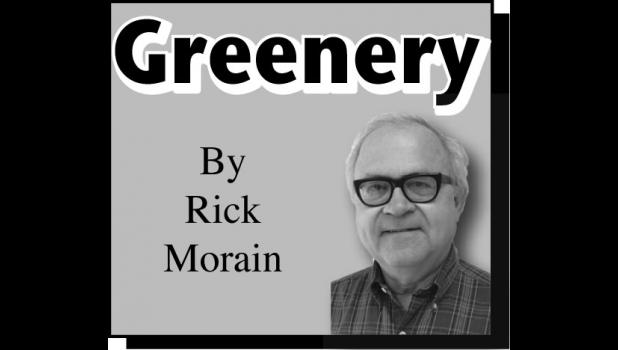The start of the season ... to start asking tougher questions
Labor Day is traditionally the start of three major seasons:
1. The start of the new school year.
2. The start of the fall sports season.
3. And, in election years, the start of the two-month period when voters start to pay attention to the candidates’ campaigns.
This is not to say that all the campaigning that’s already been underway for months has gone unnoticed.
This year, most of the candidates for major state and national office have spent considerable funds trying to define their opponents — that is, pointing out why electing their opponents would be a catastrophe for the state or nation.
That’s come to be expected in American democracy, although it doesn’t speak well for what elections are supposed to accomplish.
In an ideal system, candidates would try to convince voters why they should vote for them, rather than why they should vote against the other folks.
In all too many races, the theme is “my opponent is so bad that you really have no alternative other than to vote for me, whether you know much about me or not.”
So what should a serious voter look for in a candidate for public office? What are the most important qualities of those seeking to be elected, and what are the most important actions they will take if they win?
For candidates for legislative positions at both the federal and the state level — that is, for Congress or for the state Legislature — the most important vote they will take is the very first one of the new legislative session. That’s when the legislative party leadership is chosen by the membership of the body.
The majority leader will decide who chairs the legislative committees. Those chairs in turn decide what hearings to hold on proposed bills, and what bills to send up to the full House.
Once a bill is sent up, the majority leader then decides whether the bill will actually be debated and voted on, or whether it will be buried indefinitely.
That’s why control of the legislative body is so important to the parties.
The party with the majority of the membership controls the action agenda until the next election makes that decision again.
It’s pretty clear by now what direction the federal House and Senate and the same Houses in the Iowa Legislature will take if one party or the other wins control of that body. The broad-based parties of a few decades ago no longer exist. Parties today are much more ideologically oriented.
That’s why cooperation across the aisle in legislative bodies is so rare today, and it’s why there’s a growing thirst among citizens for legislators at the state and federal levels who promise to try to work across the aisle to accomplish something.
If ideological purity is your thing, you generally have the opportunity to cast your vote accordingly. But if you think elected representatives should try to work together, you might want to ask the candidates how they view their duties in that regard.
How about the other elected branch of government, the executive?
Since the presidency is not up for election this November, that leaves the office of governor as the only chief executive to be chosen this year by Iowa voters.
Probably the most important quality for a chief executive is to make clear his or her long-term vision for the nation or the state he or she is seeking to lead, rather than trumpeting the immediate or short-term battles to be fought. The priorities of such a governor then become the legislative goals he or she works to accomplish.
Examples of such leadership would include President Teddy Roosevelt’s vision of our national park system.
What would this nation be if private-sector exploiters had been allowed to mine, clear-cut, graze and otherwise use up the public lands that today belong to all of us?
Another example is North Carolina Gov. Terry Sanford’s vision of that state’s Research Triangle, which he successfully persuaded the Legislature there to create through appropriate legislation in the 1950s.
Today, the region around Raleigh, Durham and Chapel Hill, led by Duke University, North Carolina State University and the University of North Carolina, is a cutting-edge high-tech engine that operates in stark contrast to what North Carolina used to represent in the national mind.
Iowa voters should decide which gubernatorial candidate demonstrates the clearest vision of what he wants the state to be in 2030 or so, and then how he proposes to get there.
For example, 100 years ago, Iowa led the nation in expenditures for road improvements, creating the state’s interlocking grid of hard-surfaced roads.
What are the candidates’ proposals for maintaining and improving Iowa’s infrastructure of all kinds? What other improvements are needed to make Iowa’s quality of life the envy of the nation, for the state’s citizens and their institutions, public and private?
Voters do themselves a disservice if they let the candidates get off with glib sound bites and ideological pandering.
Ask for more.
- Log in to post comments

